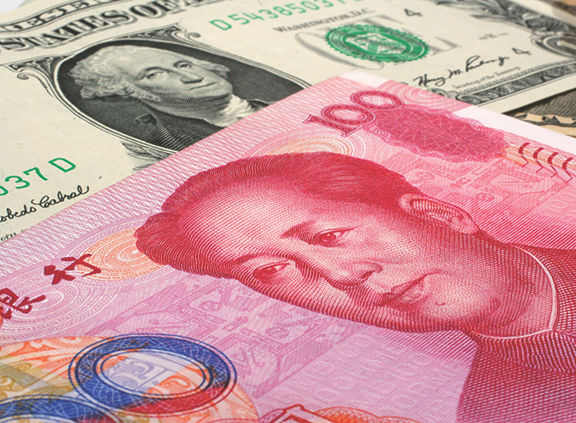 Based on exchange rates in early March, $1 bought 6.5 yuan.
Based on exchange rates in early March, $1 bought 6.5 yuan.
United States-based corporate travelers traveled at a discount in 2015, thanks to the U.S. dollar's gain against major Asian currencies, and sustained strength is on tap for 2016. The dollar has been growing in value against the Chinese yuan since the beginning of 2014. Based on
exchange rates in early March, $1 bought 6.5 yuan. An early March Reuters poll of 61 currency experts projected further depreciation in China's currency to 6.7 per dollar within six months and to 6.78 per dollar within 12 months. Meanwhile, the dollar reached its highest value against the Japanese yen in
more than a decade, exchanging at 125 yen to $1 in mid-2015. The 114 to 1 exchange rate in early March remained historically strong.
The relative power of the dollar should only build this year. Against the dollar, Reuters projected, the yen "will slip to 116 in three months, 118 in six months and 120 in a year." The greenback also has gained steam against the Indian rupee and remained historically strong against
the Australian dollar based on early March metrics.
Here's what the dollar can buy in Asia.
Japan Rising: Tokyo's Big Jump
A nightly stay in Japan's capital will cost a business traveler US$225.36, second in Asia only to Hong Kong's $295.12. Tokyo's average hotel rate rose 6.8 percent in 2015, while Hong Kong's contracted 3.6 percent. While Asia should see stable hotel pricing this year, according to travel
management company projections, Japan is a notable exception. BCD Travel's Advito projected 2016 hotel rates in Japan to rise as much as 10 percent year over year, according to its March forecast revision. "Occupancy rates are growing, especially for leisure travel, owing to a recovering domestic economy,
a depreciating currency and relaxed visa requirements for visitors from Southeast Asia," Advito commented in a prior forecast.
STR Global reported Japan hotels' average daily rate rose 10 percent year over year in January, the 10th consecutive month with a year-over-year percentage increase in the double digits. Japan's hotel occupancy also reached a January record. "A boom in international arrivals
and a lack of new supply have served as the driving forces behind hotel performance in Japan," according to STR.
MERS Rattled South Korea Hotels
Of all the Asian markets in BTN's Corporate Travel Index, Seoul's per diem fell the hardest from last year. Average per diem tumbled 35 percent year over year to US$285.63, when converted to U.S. dollars for each period. Advito attributed pricing weakness there to a slowing economy
and growing hotel supply, exacerbated by an outbreak of the Middle East Respiratory Syndrome last spring and summer in South Korea. STR Global reported that hotel demand in South Korea "began to pick up slowly during the fourth quarter of 2015 after several months of significant decreases"
stemming from MERS.
For January, STR detected a slight lift in South Korean hotel occupancy, the first rise since September 2014. January 2016 ADR, however, declined slightly year over year. Advito projected an increase of no more than 1 percent in hotel rates in South Korea this year.
India on the Cheap
Among the 100 non-U.S. cities in the Corporate Travel Index, Bangalore, dubbed the Silicon Valley of India, came in as the most affordable city for an overnight business trip, inclusive of meals, lodging and miscellaneous expenses. Its US$167.22 per diem is almost one-third of Hong Kong's,
the most expensive city in Asia for yet another year. Mumbai, the financial center of India, posted the third-cheapest international per diem at $187.88. Though pricier, India capital New Delhi, at $235.37, still ranked in the bottom quartile of non-U.S. Corporate Travel Index cities.
American Express Global Business Travel forecast healthy business travel demand in India this year, but the nation's "lingering overcapacity" of hotel rooms should mitigate hotel rate increases for business travelers. Meanwhile, financial headlines in 2016 have noted an abrupt spike in India's
consumer price index, suggesting an increase in on-the-ground costs this year.
China's Global Stature
This year, China is poised to overtake the United States as the largest business travel market in the world, according to Global Business Travel Association projections released late last year. Spending on business travel initiated in China was on pace to grow 11.2 percent
last year and should grow another 10.7 percent in 2016, based on GBTA's year-over-year projections. Though GBTA now forecasts slower business travel spend in China in 2016 than originally expected, it still anticipates a surge. "China business travel will increase by 61 percent over the next five years, from $262
billion in 2014 to $420 billion in 2019," projected GBTA.